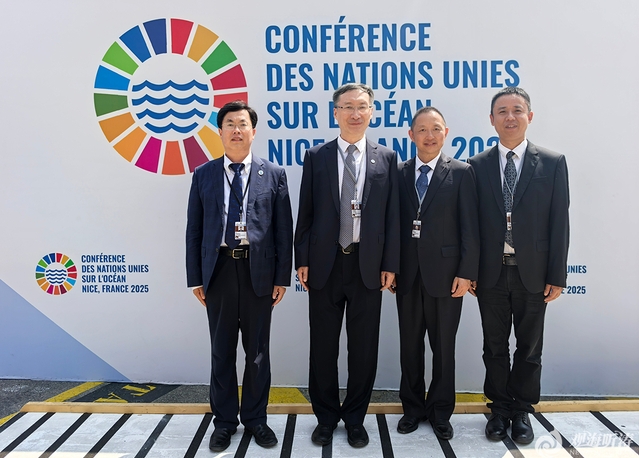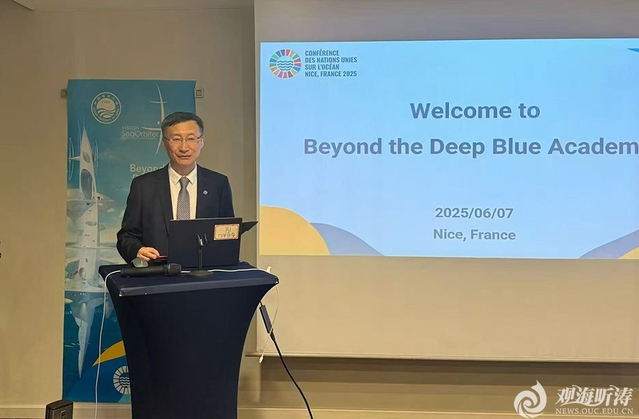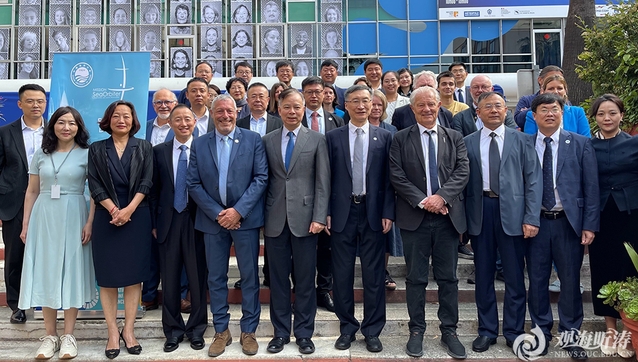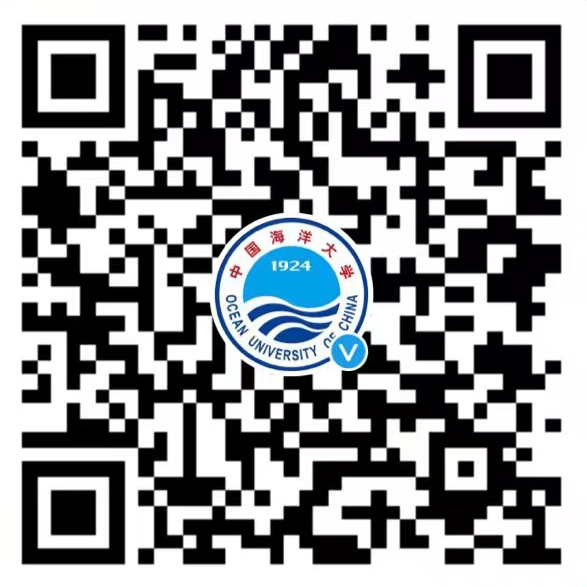On June 9, the third United Nations Ocean Conference (UNOC3) was held in Nice, France. Prof. Zhang Junfeng, President of Ocean University of China (OUC), led a delegation to attend the conference, and participated in the opening ceremony and the “Beyond the Deep Blue” side event, co-organized by OUC and Mission SeaOrbiter (MSO).
Co-hosted by France and Costa Rica, UNOC3 seeks to support the implementation of “Sustainable Development Goal 14: conserve and sustainably use the oceans, seas and marine resources for sustainable development”, with the overarching theme of “Accelerating action and mobilizing all actors to conserve and sustainably use the ocean”. The Conference brought together 122 governments, major marine-related non-governmental organizations, academic institutions and other stakeholders to engage in discussions on global ocean governance.

During the conference, in order to strengthen China’s pioneering role and enhance its international influence in marine science and education, OUC, in collaboration with MSO, co-hosted the “Beyond the Deep Blue” side event. Minister Counsellor Chen Li at Chinese Embassy in France, Jacques Rougerie, Founding President of MSO and Academician of Institut de France, and Meng Qingsheng, Director General of Qingdao Municipal Ocean Development Bureau, addressed the meeting.

In his opening address, President Zhang Junfeng introduced OUC’s remarkable achievements in advancing ocean development and promoting global marine cooperation. He noted that the university has been advancing international collaboration on marine research and education, fostering a new paradigm for open cooperation and continuously contributing to sustainable ocean development and the building of a maritime community with a shared future. He also highlighted the important progress achieved by OUC and its French partners in the SeaOrbiter project. Looking forward, the university will work closely with its French partners to build the SeaOrbiter into a major innovative platform for global marine research, and strengthen pragmatic collaboration with all the partners to address the global challenges in marine science.
Jacques Rougerie spoke highly of the strategic cooperation with OUC, noting the substantial and effective work both sides have done. He expected the two sides to work together to build the SeaOrbiter and advance humanity’s marine cause. Meng Qingsheng introduced the achievements of Qingdao’s blue economy, expressing full support for the SeaOrbiter project and proposing suggestions for strengthening cooperation in marine scientific innovation, deepening collaboration on marine observation systems and developing marine-related industries.
The side event featured both academic and strategic meetings. The discussions delved into cutting-edge marine technologies, with experts and scholars from China, France, the UK, and other countries delivering reports on topics such as deep-sea circulation, artificial intelligence models, and marine virus diversity. A roundtable discussion was also held, where participants and experts from renowned international institutions, including the Woods Hole Oceanographic Institution (WHOI) and the Monterey Bay Aquarium Research Institute (MBARI), exchanged ideas on interdisciplinary marine scientific cooperation. Chinese institutions, including Laoshan Laboratory and Marine Equipment Inspection & Testing Group, also presented their development and strengths in marine technology research and testing.

The success of the side event highlighted OUC’s leading role in marine science and education cooperation, significantly enhancing the university’s international reputation and impact. OUC will continue to work with MSO, and jointly advance the SeaOrbiter project. OUC will also fully leverage its distinctive strengths in marine science and technology, and embrace a more open approach to participate in global ocean governance, and contribute to the advancements of the United Nations Sustainable Development Goals and sustainable ocean development.







